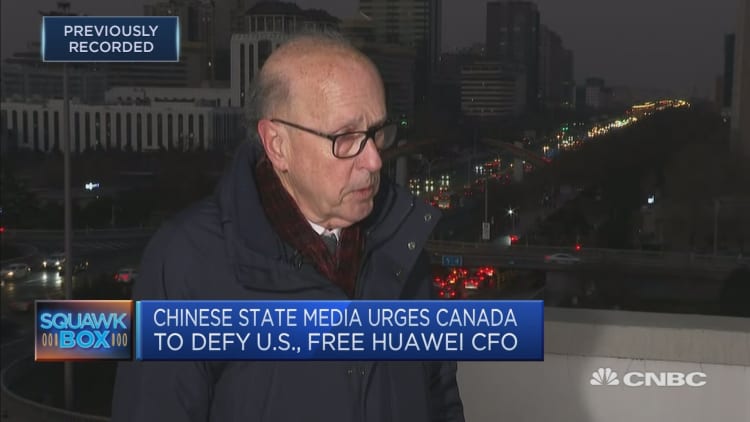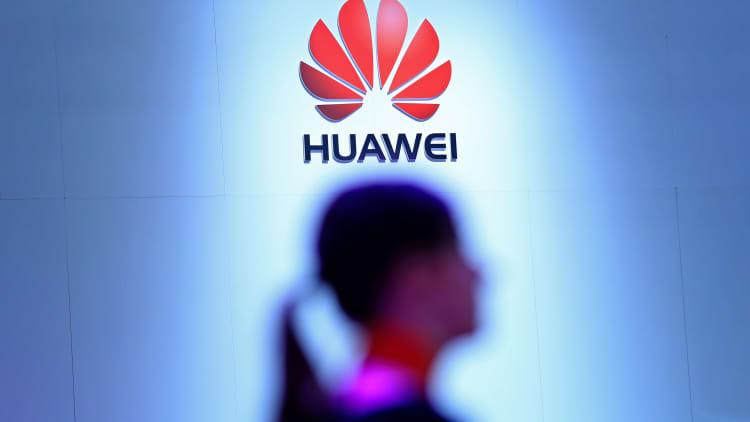A former Canadian diplomat detained in China is being denied legal representation and is not allowed to turn the lights off at night, people familiar with the situation said, offering new details on the highly charged and closely watched case.
China last week detained two Canadians — Michael Kovrig, a former diplomat and an adviser with the International Crisis Group (ICG), and businessman Michael Spavor — after Canadian police arrested Huawei Technologies Co Ltd's chief financial officer, Meng Wanzhou, on Dec 1.

Canada arrested Meng at the request of the United States, which is engaged in a trade war with China. Meng faces extradition to the United States to face fraud charges which carry a maximum sentence of 30 years jail for each charge.
China has given only vague details of why they have detained the two Canadians, saying they are suspected of engaging in activities that endangered China's security, and has not drawn a direct link to Meng's arrest.
Canada has said the detentions are unacceptable and U.S. Secretary of State Mike Pompeo has said China should free the men. ICG President Robert Malley also called for Kovrig's release on Saturday.
The sources familiar with Kovrig's case said the Canadian was taken away around 10 pm (1400GMT) on Monday last week while on the street in Beijing.
China formally notified the Canadian government of Kovrig's detention two days later, at 4 pm (0800GMT) on Wednesday last week. Canada only gained consular access to him at a police station on Friday last week, when he was visited for half an hour by the Canadian ambassador and two other Canadian diplomats, the sources said.
He is not allowed to apply for bail and not allowed to see a lawyer, said one source, adding Kovrig is questioned every morning, afternoon and evening, not allowed to turn the lights off at night, and is being held at an undisclosed location.
He is also only allowed one consular visit a month and is not allowed to see family or loved ones.
He is physically alright but tired and stressed, but physically he does not appear mistreated, the source said.

Two other people familiar with the case corroborated the details.
A third person said Kovrig was being confined to a single room, but despite the stress remains lucid.
The comments were made in recent days. All the sources requested anonymity citing the sensitivity of the situation.
China's Foreign Ministry did not immediately respond to a request for comment. It has said that the lawful rights of both men were being fully protected.
China's Ministry of State Security, which is leading the investigation into Kovrig, has no publicly available contact details.
"Our previous comments on this case stand," said Adam Austen, a spokesman for Canadian Foreign Minister Chrystia Freeland.
The Canadian government has said several times it saw no explicit link between the arrest of Meng, the daughter of Huawei's founder, and the detentions of Kovrig and Spavor.
But Beijing-based Western diplomats and former Canadian diplomats have said they believed the detentions were a "tit-for-tat" reprisal by China.
A Canadian court last week granted Meng bail. If a Canadian judge rules the case against Meng is strong enough, Canada's justice minister must next decide whether to extradite her to the United States. If so, Meng would face U.S. charges of conspiracy to defraud multiple financial institutions.
China on Thursday said a third, female Canadian is undergoing "administrative punishment" for working illegally, after Canada's government confirmed the detention.

